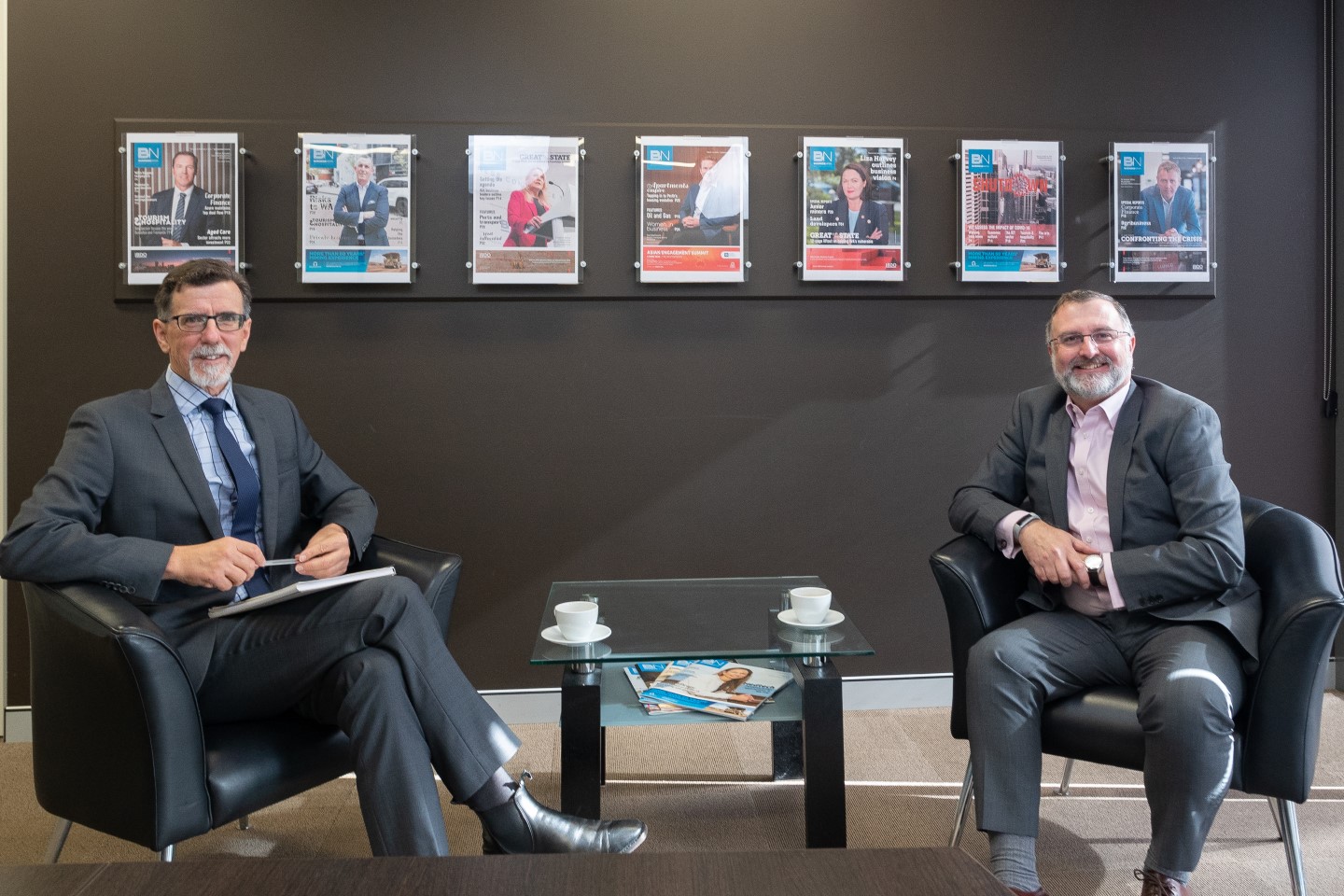Rio Tinto has established an internal team to lock in some of the unexpected efficiency gains it has achieved during COVID-19 restrictions, the group’s iron ore chief executive Chris Salisbury has told Business News in a video interview.


Rio Tinto has established an internal team to lock in some of the unexpected efficiency gains it has achieved during COVID-19 restrictions, the group’s iron ore chief executive Chris Salisbury has told Business News in a video interview.
“We already have a team working on how we lock in the benefits of what we’ve seen,” Mr Salisbury said.
He said the miner was reviewing its rosters and assessing whether tasks previously done in the Pilbara should be moved in Perth.
The group was also evaluating the use of technology for remote working, including video conferencing and the use of survey drones.
“It’s really crystallised opportunities in that space,” Mr Salisbury said.
“And it has reinforced to us all [that] we don’t need to travel anywhere near as much as we normally do, and that’s something we’d like to lock in to our operating model going forward.”
He said the changes adopted by Rio during the past two months, including longer rosters at the mines, strict health checks, and the closure of its head office, had been transformational for the business.
The changes included 700 interstate staff relocating to Perth, many with their families, because of the ban on interstate travel.
In his seventh week of working from home, Mr Salisbury admitted to missing the personal interaction in the office but said the experience overall had been positive.
Mr Salisbury said he was quietly impressed that Rio’s people had accepted so many changes while also sustaining the group’s production and shipments.
“The business is operating extremely well; safe, productive, our people are engaged and positive, so actually life’s pretty good,” he said.
Another positive was the sustained demand for iron ore in China, which he said was clearly on the path to economic recovery.
“We’re one of the few industries that is still operating more or less normally,” Mr Salisbury said.
In a wide-ranging interview, Mr Salisbury advocated reform of the approvals process to hasten the recovery from the economic slowdown.
“It’s a chance in a lifetime and we’re keen to be part of that dialogue,” he said.
The video interview coincided with Rio’s announcement of a partnership with Matic Transport to donate 6,000 litres of hand cleaning products to communities in the Pilbara and Kimberley, as well as remote parts of Queensland and the Northern Territory.
Matic Transport donated its time and freight services to distribute the products on a 15,000-kilometre journey across the top of the country.
Rio Tinto sourced the anti-bacterial and anti-viral hand cleaning products from a family-owned manufacturer based in Perth and is seeking additional supplies.
The recipients included Roebourne-based Murujuga Aboriginal Corporation.
MAC chief executive Peter Jeffries said he approached industry partners for support, given Aboriginal communities were identified as vulnerable people, particularly the elderly and those who suffered from chronic health issues.
Mr Salisbury said the group was supporting a wide range of initiatives designed to help Aboriginal communities respond and recover from the challenges presented by COVID-19.
Globally, Rio has committed an extra $US25 million to help communities.
Locally, it donated $1 million to both the Shire of Ashburton and the City of Karratha to help them recover and has continued to support the Royal Flying Doctor Service western region.














